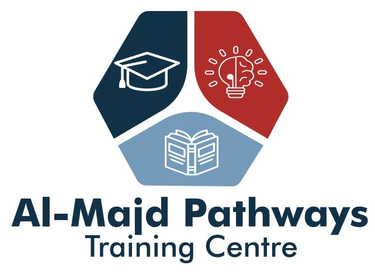
Financial Management for the Oil & Gas Industry
£12850.00£11500.00
INTRODUCTION
This 10-day Financial Management Workshop provides participants with the knowledge and skills necessary to effectively control costs, prepare, manage, and control budgets in the Oil & Gas industry. It offers solutions to the strategic challenges facing the industry, recommending sustainable growth strategies while ensuring efficient cost control. Additionally, participants will gain the ability to prepare, understand, and evaluate financial accounts specific to the Oil & Gas sector.
This training course will cover:
A comprehensive understanding of financial accounting, costing, and budgeting in the Oil & Gas industry, focusing on leading international practices.
Examination and evaluation of the latest techniques.
Skills development through interactive sessions.
In-depth discussions on strategic and operational challenges currently facing the Oil & Gas industry.
The 10-day training course is divided into two modules, as detailed below:
Module 1 - Budgeting & Cost Control for the Oil & Gas Industry
Module 2 - Finance & Accounting for the Oil & Gas Industry
While each module can be attended separately as a 5-day training course, participants are encouraged to attend both Module 1 and Module 2 for an optimal training outcome.
TRAINING OBJECTIVES
By completing this 10-day Financial Management Workshop, participants will be able to:
Understand the major risks affecting the Oil & Gas sector, including the impact of oil price volatility.
Evaluate capital investment proposals, including financing decisions.
Prepare and evaluate financial statements in accordance with International Financial Reporting Standards (IFRS).
Effectively measure and control costs in a competitive environment.
Prepare, manage, and control budgets specific to the Oil & Gas industry to make informed decisions, ensuring growth, profitability, and risk reduction.
Recommend innovative hedging strategies used by leading international companies to manage budgets effectively and control risks.
WHO SHOULD ATTEND?
This workshop is designed for professionals working or aspiring to work in the Oil & Gas industry. It is particularly beneficial for:
Individuals responsible for finance and budgeting.
Professionals involved in making or contributing to capital and budget decisions.
Those seeking a deeper understanding of financial accounting, budgeting, and cost control.
Department heads with direct finance, accounting, and budgeting responsibilities.
Decision-makers relying on financial budgets.
TRAINING APPROACH
This training course uses various teaching methods to ensure effective learning, reinforce understanding, develop practical skills, and promote critical information evaluation. The training sessions maintain interest through a variety of formats, including:
Real-world Oil & Gas case studies showcasing practical applications of each topic.
Extracts from annual reports of international Oil & Gas companies.
Discussions addressing relevant issues raised by participants.
Illustrated presentations of Oil & Gas accounting issues, focusing on recent events and current strategic challenges facing companies.
TRAINING OUTLINE
Day 1: The Case for Budgeting and Cost Control in the Oil & Gas Industry
Oil Price Volatility – Causes and Impact
Major Costs of Acquisition, Exploration, Production, and Development
Cost Oil and Profit Oil
The Cost Curve of the Oil Market
Controlling Gross Margins and Net Margins
Managing National Fiscal Budgets
Day 2: Finding Strategic Solutions to Cost Control
Re-assessing the Strategic Plan in Light of Recent Developments
The Need for Growth While Managing Costs
Managing Working Capital and Cash Flow
Evaluating and Managing Capital Projects
Joint Ventures, Mergers, and Acquisitions as Solutions and Growth Opportunities
Finance Solutions to Growing Costs and Oil Price Volatility
Day 3: Measuring and Controlling Costs
Cost Classification and Cost Behavior
Job Process Costing; Batch Costing, and Activity-Based Costing
Statistical Estimates of Costs
Controlling Fixed and Variable Costs
Earned Value Management
Variance Analysis
Day 4: Budgeting in the Oil & Gas Industry
The Benefits and Limitations of Budgeting
The Essential Features and Types of Budgets
Preparing Forecasts and Budgets in a Volatile Oil & Gas Industry
Using Budgets as a Management Tool
Sensitivity; What-if and Break-Even Analysis
Managing and Controlling Budgets
Day 5: Hedging Costs to Manage the Budget
Defining Hedging and Identifying Costs/Risks to Hedge
Determining the Hedging Strategy
Hedging Oil Price Volatility
Hedging Exchange Rate Risk
Hedging Interest Rate Risk
Controlling the Hedge to Avoid Speculation
Day 6: Financing Growth and Capital Projects
The Business and Financial Environment
Risks Facing the Oil & Gas Industry
Identifying Growth Opportunities
Financing Growth via Equity, Debt, and Alternative Sources
Evaluating Capital Investment Using Payback, ARR, NPV, and IRR
Capital Rationing – Internal and External
Day 7: Accounting In The Oil & Gas Industry
The Accounting System
Understanding the Annual Report
Preparing Financial Statements in Accordance with IFRS
IAS 18: Revenue and IFRS 17 Revenue from Contracts with Customers
IFRS 6: Exploration for and Evaluation of Mineral Assets
Accounting Approaches – The “Successful Efforts” (SE) Method or the “Full Cost” (FC) Method
Day 8: Accounting for Reserves, Resources and Assets
Resources & Reserves – Size and Importance
Reserve Classification and Reserve Quantity Disclosures
Accounting for Assets and Relevant IFRS Requirements: IAS 16, 36, 37, 38, and 39
Depreciation, Depletion, and Amortisation (DD&A)
Ceiling or Impairment Tests
Decommissioning, Removal, and Restoration of Assets
Day 9: Business Combinations, Joint Arrangements, and Production Sharing Agreements
The Need for Cooperation in a Capital-Intensive Industry
IFRS 3 Business Combinations
IFRS 10 Preparing and Presenting Consolidated Statements
IFRS 11 Joint Arrangements, Joint Operations, and Joint Ventures
Production Sharing Agreements
Revenue, Cost, Cashflow, and Reserve Implications
Day 10: Financial Analysis to Evaluate Performance
Certificate of Completion: Upon successful completion of the course, participants will receive a Certificate of Completion from Al-Majd Pathways Centre (APC).
Get in touch with us today.
Follow
Sign-up for our newsletter
0044 7466410010
©2025 All rights reserved.
